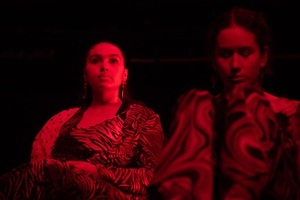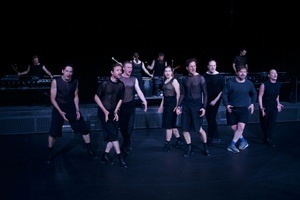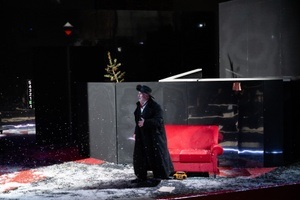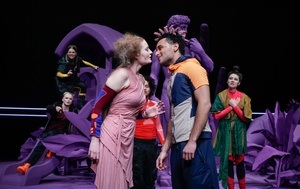Balau
In the organizer's words:
A night in which joy and lamentation lie close together.
Serge Aimé Coulibaly is known for his expressive, energetic dance language, which makes bodies and gestures immediately political. In "Balau", a wedding party experiences a long night. With an unexpected event, an accident - in the West African language Dioula: "Balau" - the outside world violently breaks into their gathering. As a global community of fate, they suddenly experience and bear witness to the brutality of our time.
"I would like to testify. We waited for the sun. The sun burned us, charred us. On our heads, our feet and our stomachs"
(Fiston Mwanza Mujila, from the texts for Balau)
The choreography and text work with the gestures and rituals of a society that no longer directly trusts its capacity for compassion and solidarity. They also draw on the experiences of those who do not belong to this society, who have been exploited and excluded by it. How are world history, colonial history and current events reflected in our individual humanity - and in our view of violence in the world? Five actors from the Münchner Kammerspiele ensemble and three dancers from Faso Danse Théâtre form an ensemble of expressive bodies for "Balau" - the metaphor-rich language of Fiston Mwanza Mujila on their lips.
Serge Aimé Coulibaly has already introduced himself to Munich audiences with his acclaimed dance guest performance "C la vie" and his co-direction of "Les statues rêvent aussi. Vision of a return" (together with Jan-Christoph Gockel). The internationally successful choreographer began his career as a dancer with Alain Platel and lives and works between Burkina Faso and Belgium. For "Balau", he is collaborating for the first time with the award-winning Congolese-Austrian author Fiston Mwanza Mujila, who became known to a wider audience with his novel "Tram 83".
This content has been machine translated.












